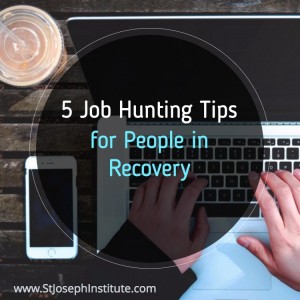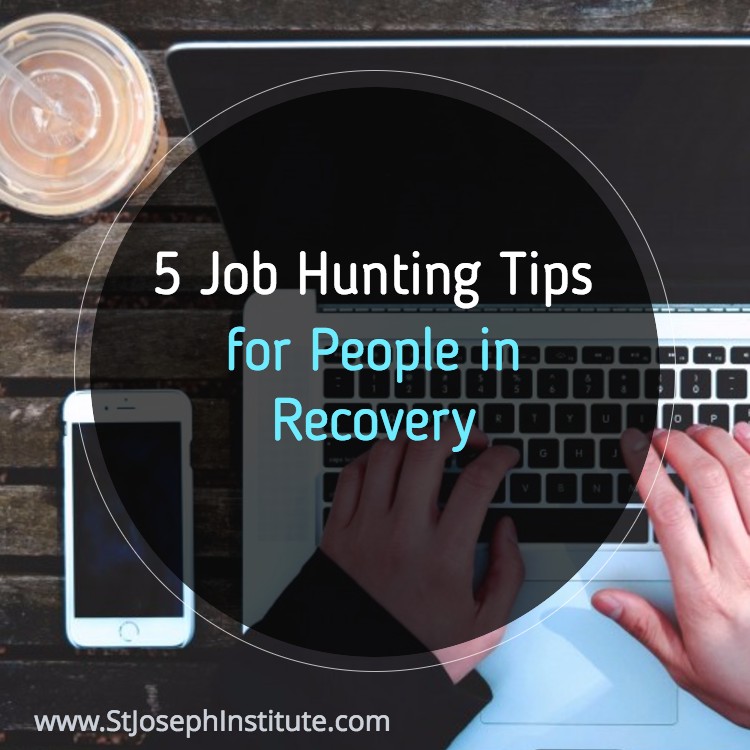
Job hunting is never an easy process, but people in recovery face some distinct challenges. From the need for a flexible schedule to explaining a spotty work history, landing a new position while in recovery will require careful planning and preparation.
Daniel Krasner, Summit Behavioral Healthcare’s Assistant Vice President of National Business Development, has a unique perspective on the post-recovery job search. He launched his own successful career after receiving addiction treatment and has helped fill multiple marketing and sales-related positions.
Recently, Krasner volunteered to share some advice for job seekers in recovery.
1. Don’t Share Too Early in the Process
Krasner believes your recovery shouldn’t be mentioned in your resume or cover letter. Employers only need information that’s relevant to your ability to perform specific job duties.
“I look at addiction as a disease, like diabetes,” Krasner said. “Just as you wouldn’t immediately tell a potential employer that you’re a diabetic, you don’t need to mention that you’re in recovery until an offer is on the table. It’s not necessarily something you need to share until it becomes relevant to the job at hand.”
2. Decide How Much You’re Comfortable Disclosing
Seeking addiction treatment is nothing to be ashamed of, but people in recovery have different levels of comfort when discussing their sobriety with others. To a large extent, how much you share is a matter of personal preference.
“Everyone is different as far as their willingness to disclose,” Krasner said. “You can come right out and say you were in recovery or you can simply say you had a medical issue that needed to be addressed. If you’re still in treatment or at a halfway house, you might need to provide more detail than someone with a few years of sobriety simply because you might need to leave early for meetings. If you’ve been sober for several years and it won’t affect your job performance, a full disclosure is less important.”
3. Be Honest
Wanting to protect your privacy is understandable, but it’s vitally important that you tell the truth when asked. Although a potential employer isn’t entitled to know every detail about your addiction treatment, the issue becomes relevant if you have a criminal record from your addiction or were terminated for addiction-related performance issues. Lying about your background will lead to automatic termination for most employers, regardless of whether you’re fudging your educational credentials or omitting the fact that you have a DUI and a possession charge on your record.
Owning up to your past isn’t easy, but Krasner points out that the best way to get a job is to help an employer see that you have the maturity to use past mistakes as an opportunity for growth. “You have to go into the process assuming that they will call your past employer and conduct a background check,” Krasner said. “Be honest about the mistakes that you’ve made, but show that you’ve changed since then.”
If you’re worried that you’ll get tongue-tied when asked about a specific issue on your resume, write up a detailed response beforehand and practice it with a friend or your sponsor. “God didn’t carry you this far to see you fall,” Krasner said. “Lean on your support network and practice your interviewing skills to calm your nerves and boost your confidence.”
4. Be Open to Feedback
Rejection is unfortunately part of the job search. This can be hard for someone in recovery, as it may trigger feelings of being not good enough or unworthy of success. However, successful job seekers are those who can turn rejection into a new opportunity.
“If you’re getting interviews but no job offers, ask for feedback on areas you need to improve,” Krasner said. “You may also want to take a deep hard look at your resume. To be effective, it needs to portray your background honestly but positively and be targeted towards the specific job position.”
5. Be Willing to Start Small
When it comes to your post-recovery career, you can’t expect to land your dream job immediately. Change takes time, so patience is a virtue. Treat your job search like a full-time job, be strategic, and stay confident in the belief that you’ll eventually find a position that’s right for you.
“It’s always easier to get a job if you already have a job,” Krasner said. “You may have to humble yourself somewhat to get your foot in the door, especially if your professional reputation suffered due to your addiction. This is a consequence of the choices you’ve made. Take what you can get, but use the opportunity as a steppingstone to something better.”
By Dana Hinders
To learn more about our programs or for a campus tour of St. Joseph Institute, please visit our website.


